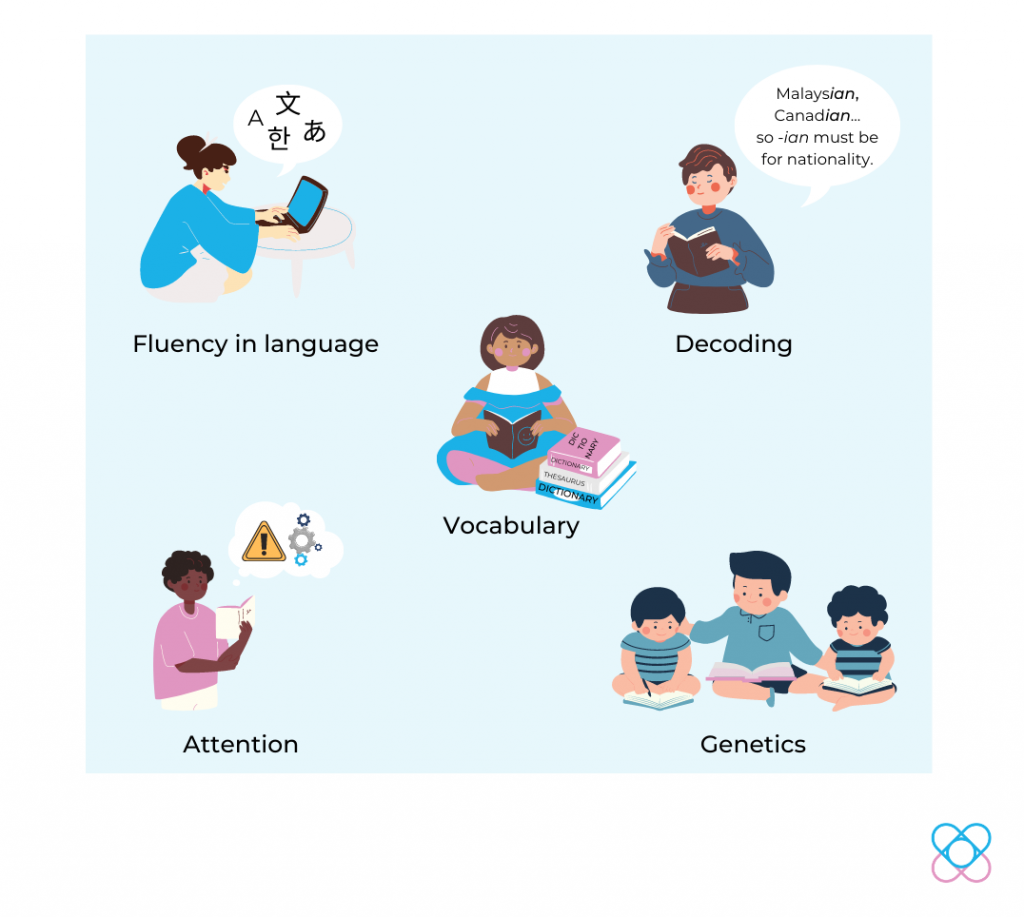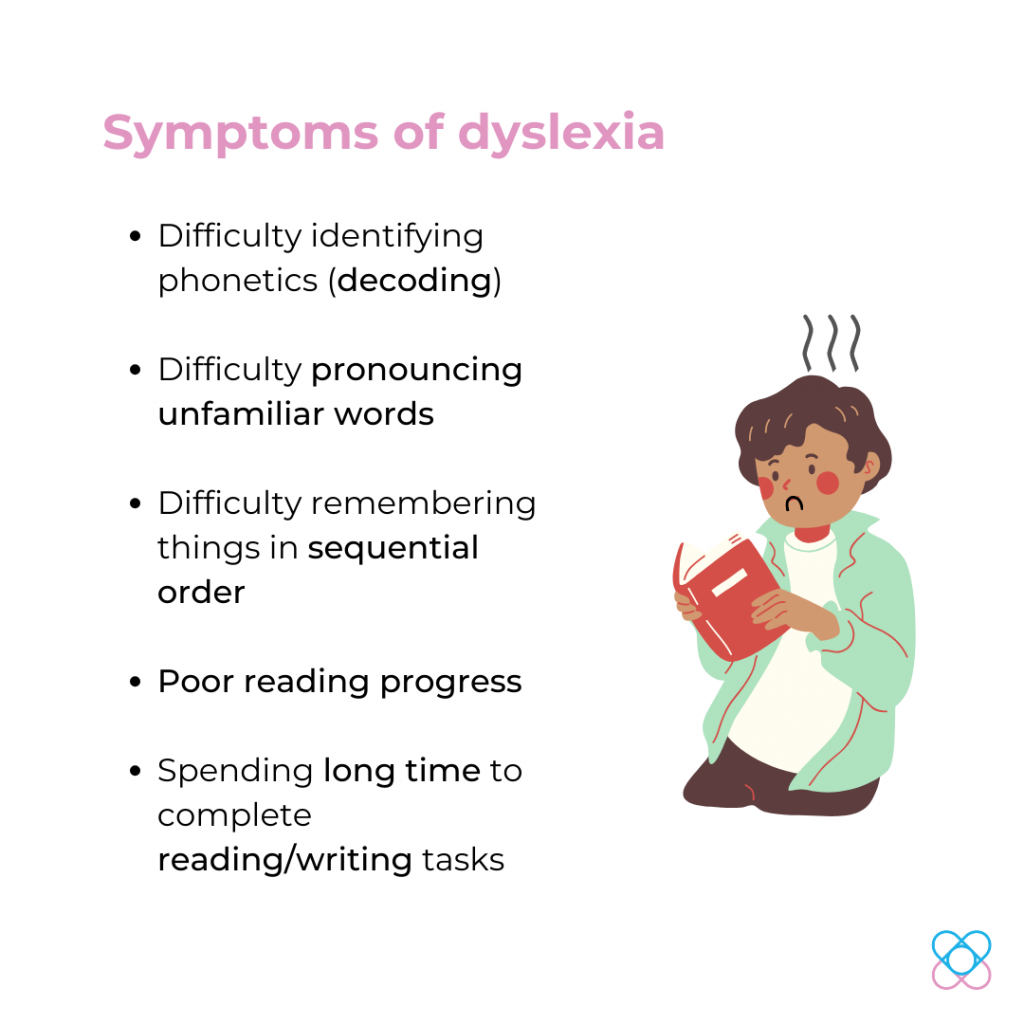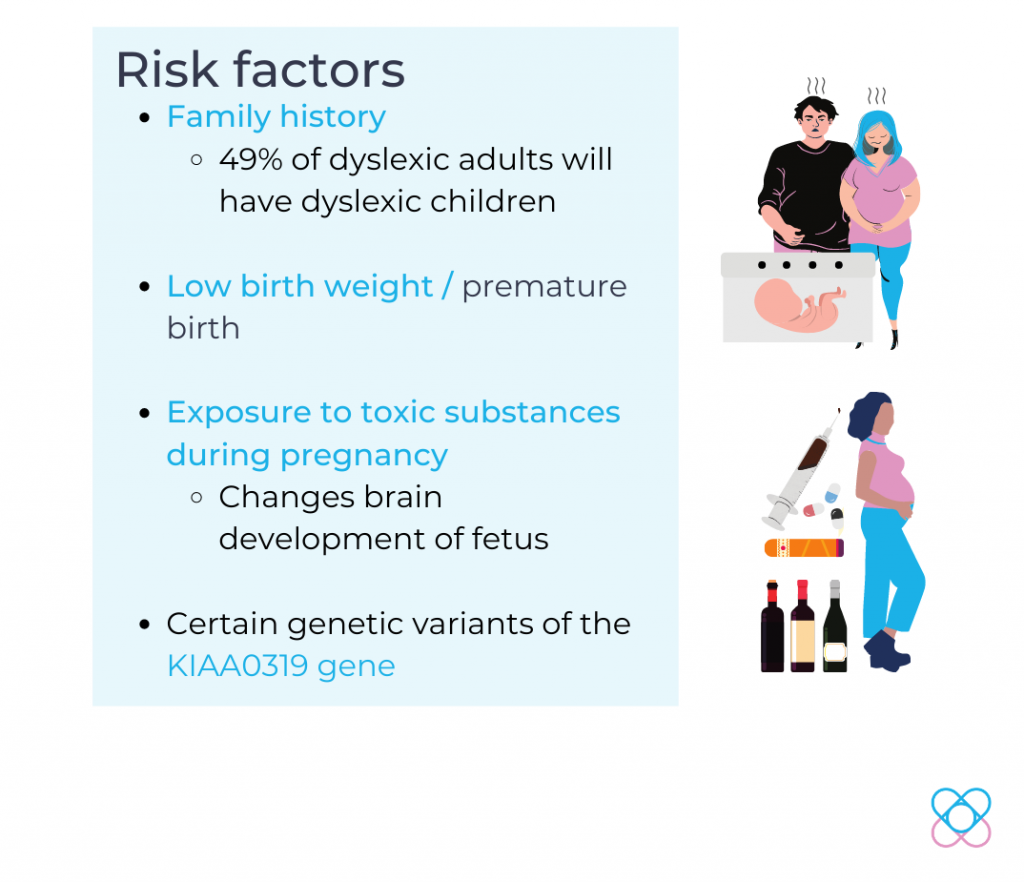To most of us, reading is an automatic process. After learning at a young age, we quite literally never stop reading. Identifying, understanding, and interpreting written words on a page are as important in our daily lives as eating or sleeping.
Being able to process words within a short period of time is a common sign of someone’s intelligence. The word “literacy”, a synonym for reading ability, often means “to be competent at something”. Therefore, it’s no surprise why good reading ability is often tied to one’s intelligence!
The ability to read combines many different skills that happen at the same time. These skills are influenced by a variety of different factors, including genetics.
Non-genetic factors influencing reading ability
Being able to read requires both conscious and unconscious ways of understanding the text. How well the person can read the text depends on the following elements:

Fluency in language
- In general, it’s quicker + easier to read in your mother tongue as compared to other languages.
- However, quick comprehension can also depend on whether we are often reading specific texts in other languages.
- E.g. a mother tongue Chinese speaker who exclusively reads scientific articles in English would understand English articles quicker than full Chinese articles.
Decoding and context
- Picking out sounds (phonetics) to learn new words, keep them in our memory (familiarity), and link them with other words.
- Being able to interpret subtleties in the text also boosts our ability to read
Vocabulary and cohesion
- Having a more extensive vocabulary allows better understanding at face value.
- Cohesion (grammatical links between sentences) allows for the connection of ideas to better organise our thoughts and knowledge.
READ ALSO: Cognitive Ability & Your Genes
Attention
- Good ability to read is tied to a strong working memory.
- Concentration helps to build upon existing knowledge during reading.
- Reading interesting topics will result in better attention.
There are many effective techniques for improving our overall reading ability:
- Read books/texts on topics interesting to you.
- Start with a short passage and build up your concentration for longer texts.
- After finishing, write down your thoughts.
- Compare concepts between books to improve critical judgment.
- Branch out and find new interests
- Help increase vocabulary + overall awareness of ideas
Apart from these environmental factors, our genetics can also inherently affect our ability to read.
Reading ability, genetics and dyslexia
Research has shown that genetics is the main cause of reading disabilities, such as dyslexia.
Dyslexia consists of difficulties learning to read and impairs reading comprehension. The condition is prevalent in roughly 10% of school-age children in Malaysia, and can be identified through the following symptoms:

These symptoms occur due to atypical brain signalling patterns.
For unaffected people, reading activates the frontal part of the brain’s left hemisphere more than the right hemisphere. This event does not happen in people with dyslexia, meaning the brain region used to process language is activated less than usual.
Inheritance of dyslexia
There have been suggestions in recent research that the brain differences observed are linked to hereditary genes. An example is the gene KIAA0319, which is linked to poor reading and spelling performance in Caucasian and Asian ethnicity children.
The poor performance can be accredited to reduced awareness of phonetics when learning new words. Since the children struggled to pick out the individual phonetic sounds, they could not decode or remember the new words. Reading difficulties in their first language (Chinese) also caused similar struggles in their 2nd language.
Factors such as family history, premature birth, and harmful exposure during pregnancy are determining risk factors for dyslexia.

Can dyslexia be cured?
While people with dyslexia may continue to struggle with reading throughout their lives, there are multiple ways to make the learning process easier.
Learning disability specialists suggest early intervention to be the best treatment for dyslexia. Since dyslexia does not affect one’s actual intelligence, realising the symptoms early will help set good fundamentals for the child moving forward.
Professional intervention such as reading therapy and educational support can also help.
To encourage fluency, children are encouraged to recognise short syllables and use them to make up words. Building up to more complex combinations will help increase the child’s vocabulary.
Additionally, reading aloud with parents is also encouraged to increase their speed, accuracy, and expression.
—
Want to learn more about your Inner Potential traits? Learn more about your genetic predisposition with DNA Explorer Personal today.
References
1. Dyslexia – Mayo Clinic. Mayoclinic.org. (2017). Retrieved 25 January 2021, from https://www.mayoclinic.org/diseases-conditions/dyslexia/symptoms-causes/syc-20353552#:~:text=Dyslexia%20is%20a%20learning%20disorder,the%20brain%20that%20process%20language.
2. Eden, G. (2019). Dyslexia and the Brain – International Dyslexia Association. International Dyslexia Association. Retrieved 25 January 2021, from https://dyslexiaida.org/dyslexia-and-the-brain-fact-sheet/.
3. Lee, A. (2019). 6 essential skills for reading comprehension. Understood.org. Retrieved 25 January 2021, from https://www.understood.org/en/learning-thinking-differences/child-learning-disabilities/reading-issues/6-essential-skills-needed-for-reading-comprehension.x
4. Lim, C., Wong, A., Ho, C., & Waye, M. (2014). A common haplotype of KIAA0319 contributes to the phonological awareness skill in Chinese children. Behavioral And Brain Functions, 10(1), 23. https://doi.org/10.1186/1744-9081-10-23.
5. Liu, F. (2010). Reading Abilities and Strategies: A Short Introduction. International Education Studies, 3(3), 1-5. Retrieved 25 January 2021, from https://files.eric.ed.gov/fulltext/EJ1065868.pdf.
6. Paracchini, S., Steer, C., Buckingham, L., Morris, A., Ring, S., & Scerri, T. et al. (2008). Association of the KIAA0319 Dyslexia Susceptibility Gene With Reading Skills in the General Population. American Journal Of Psychiatry, 165(12), 1576-1584. https://doi.org/10.1176/appi.ajp.2008.07121872.
7. What is dyslexia?. Understood.org. (2019). Retrieved 25 January 2021, from https://www.understood.org/en/learning-thinking-differences/child-learning-disabilities/dyslexia/what-is-dyslexia.

